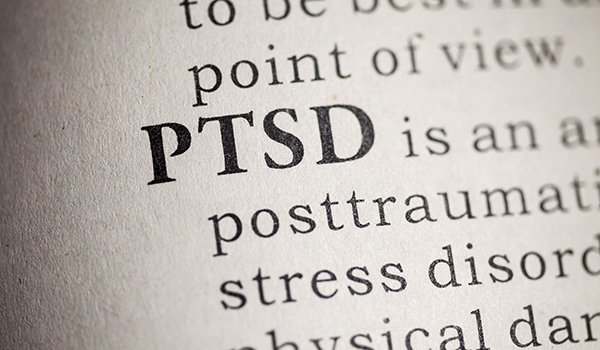
When people think about Post Traumatic Stress Disorder (PTSD) the first thing that comes to mind are soldiers who have come back home from the recent wars in Iraq and Afghanistan. PTSD is a mental health issue that affects more than just soldiers. By definition, PTSD can happen to anyone who has experienced or witnessed a traumatic event. That event could be a natural disaster that destroys a person’s home, a bad accident, rape or physical abuse. People with PTSD struggle with stress and fear long after the traumatic event is over. Thus it is possible that while your co-worker might not be a war veteran, they might struggle with PTSD. That leaves us asking the question, do you know how to deal with PTSD in the workplace?
PTSD affects the person who went through the traumatic event and impacts the people around them. Sadly, cases of PTSD have led to suicide and even homicide. PTSD can also lead to substance abuse, alcoholism and even further abuse of people who are around the person struggling with PTSD.
Knowing what to expect with PTSD will help you become better equipped at helping your work colleague who is experiencing it.
Symptoms of PTSD
PTSD can manifest differently in different people.
While some people begin to experience the symptoms of PTSD immediately after the traumatic event, it may take others a few months to display the symptoms of PTSD. It’s important to keep in mind that anyone can develop PTSD at any age. No matter how long it takes however, it is important to watch out for the following signs and symptoms in people who have recently experienced a traumatic event.
For a symptom to be considered PTSD, it must have occurred for at least for a month and interfere with the daily functioning (interpersonal relationships, work, etc.) of a person.
- Flashbacks – During a flashback, the person relives the event as if it were happening all over again. The person may look terrified and have a racing heartbeat. Seemingly harmless words, objects or situations may be triggers for flashbacks.
- Nightmares – You might not experience this at work. However, if your co-worker whom you know has been through a traumatic event shares that they are constantly having scary nightmares, this might be something to note.
- Frightening thoughts.
- People with PTSD may avoid events or situations that remind them of the trauma. If you find that a co-worker deliberately avoids events, situations, people and objects and expresses dread about having to experience these things, this might be a clue. For instance, a person who has been through a bad accident might avoiding riding in a car.
- You may find that your co-worker is easily startled by things that normally would not startle anyone.
- Angry outbursts.
- Difficulty sleeping.
- A person with PTSD might have a bleak outlook on the world and about themselves. It is not uncommon for people with PTSD to blame themselves for a part they might or might not have played in the traumatic event. Self-punishing thoughts and comments like “I don’t deserve to be alive” are common.
- If you knew the person before the traumatic event, you might notice that they are constantly on edge and no longer enjoy events or activities they used to enjoy before.
How can you help?
As you can see, PTSD is an unpleasant experience for the sufferer and the people around them. When it comes to serious mental health issues like PTSD, it is always better to point your colleague in the direction of professional help.
The very first thing you can do as a helpful co-worker- where appropriate- is to engage your co-worker in conversation. If you find out that they have not yet seen a psychiatrist or psychologist for help, encourage them to see one as soon as possible.
One of the reasons people don’t seek out professional mental health help is because they assume it will either not be covered by their health insurance or that seeking help will label them as a “crazy person”. These are all real barriers that you can acknowledge as a supportive co-worker. However, it is important to let them know that getting help is going to go a long way in helping them recover.
There are a number of mental health services that are covered under your health insurance plan. Many people never take advantage of them. Encourage your co-worker to talk to your health insurance company to find out what is available to them.
Community mental health services are also excellent at helping people with PTSD locate sources of financial help so they can get the help they need. A quick Google search will help you find resources in your area.
Never ignore it when a person talks about harming or killing themselves. Call the National Suicide Prevention Lifeline immediately at 1-800-273-8255 or 911 if it is an emergency. Don’t leave a suicidal person alone.
If you are the one experiencing symptoms of PTSD and suicidal thoughts, call the Lifeline above, 911 or go to a hospital emergency room immediately for help.
PTSD In The Workplace
PTSD is a severe and common mental health issue. Mental health issues affect you both as an employee and as an employer. It is natural to feel fear and helplessness during and even after a traumatic event happens. However, if you begin to notice the signs and symptoms described above in yourself or in a co-worker, it is crucial to get professional mental health care immediately.
If you found this post helpful, consider sharing it with someone else who needs it.

